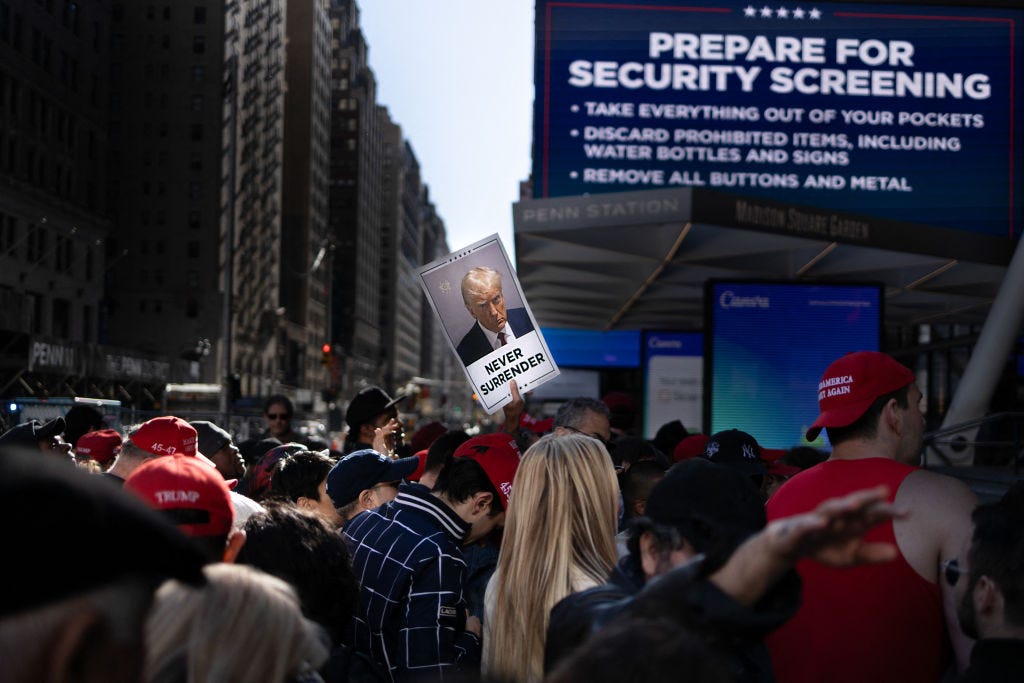The Musk-Trump endgame
Historian of fascism Ruth Ben-Ghiat on what it will take to defeat authoritarianism, the rise of American oligarchs, and how to rebuild a politics based on values
When we last spoke with historian Ruth Ben-Ghiat, she made a point that’s stuck with us all year: the fight against fascism has been and will be fought on the battleground of emotion. That has informed the way we’ve talked and thought all year about Democratic messaging and the threat of Trump and the MAGA movement, so as we’ve been exploring the ways Kamala Harris’s electoral loss has challenged the ways we and many of the smartest, most thoughtful thinkers we know to revisit their priors and presuppositions about American politics, we got back in touch.
In this first half of our conversation, Ben-Ghiat reflected on the election and talked to us about why both Democratic messaging about Trump’s fascist threat and the late tack to the center fell short, how Republican domination of media paid off both in demobilizing potential Democratic voters and mobilizing young men on the right, why the well-worn autocratic playbook still works in advanced democracies, how the threat facing the U.S. fits into the historical context of authoritarianism, and what a reimagined politics of the future might look like.
We hope The Ink will be essential to the thinking and reimagining and reckoning and doing that all lie ahead. We want to thank you for being a part of what we are and what we do, and we promise you that this community is going to find every way possible to be there for you in the times that lie ahead and be there for this country and for what it can be still.
Over the past eight years, so many smart commentators and analysts, yourself among them, have made very clear arguments about the threat to democracy of a second Trump administration. But that message was not successful. What happened? Why do you think that message was not heard?
So first of all, as the results of the election come through — because in our system, it takes a very long time to have complete results — this was much closer than people thought. I saw a post saying that it came down to something like 230,000 votes in Wisconsin and two other states. So the first point is that many people did get the message, and half the country got the message.
Though it's the same half that always gets the message. I think the question really is why was it not more compelling? And by that I mean this analysis of the clear and present danger of authoritarianism.
Yeah. So half the country got the message. The other half, part of those people are checked out of any news and they didn't vote at all. And habitually, there are tens of millions of Americans who don't vote. And this election, we also had millions who voted for Biden in 2020 and decided not to vote. So there was a redoubling of this non-participation.
As Eric Liu, the democracy activist, says, "Not voting is voting to let others decide your fate."
And I guess the fact that that continues to be a factor, even given this threat, that is what bothers me the most. Why do you think that has happened?





